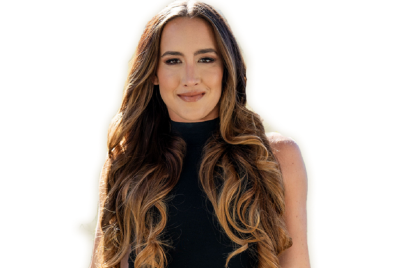The 5 Interview Questions You Should Never Answer—And Why They're Illegal in the US
Job interviews in 2025 are tricky enough—don't let these illegal questions catch you off guard.

Job hunting in 2025 can often feel like navigating through a maze of endless interviews, but there's one thing job seekers should never ignore: certain questions are not just inappropriate—they're illegal.
While it's tempting to try answering all hiring managers' questions no matter how bizarre or irrelevant to the job they seem, interviewees should watch out for certain questions that may be illegal for interviewers to ask.
These off-limit questions typically surround characteristics that employers could use to discriminate against candidates.
Job seekers asked illegal questions during an interview have the right to file a complaint with the Equal Employment Opportunity Commission (EEOC) or seek legal advice, according to Joseph Osborne from Florida-based law firm, Osbourne and Francis.
Here are five common questions you should never be asked under US employment law.
1. How old are you?
While this may seem like a standard question job seekers have answered countless times, it's actually an illegal one for those 40 and above.
Candidates aged 40 and over are protected under the Age Discrimination in Employment Act (ADEA) and can't be asked questions regarding their age or date of birth as these may be used to discriminate against older candidates.
A rare exception to being asked this question is if your age or date of birth is a bona fide occupational qualification (BFOQ), as this applies to roles where age directly impacts job performance.
2. Are you married? / Do you have or plan to have children?
Questions about marital status and family plans can feel particularly invasive.
Unfortunately, they're ones that many job seekers have come across.
One reddit user on the r/jobs subreddit said they'd been asked 'Are you planning to have children any time soon?' They received 94 upvotes and a flurry of comments sharing similar experiences.
'I got asked this! My response was no and my girlfriend doesn't have a penis,' one user replied.
Employers are banned from asking questions surrounding marriage and plans for children under federal laws due to the potential for gender discrimination, particularly against women.
The questions are also irrelevant to job performance.
Job seekers should look out for sneaky methods hiring managers may use to get around directly asking these questions.
'In a phone screen, I had a recruiter ask whether I would need to use their single or family plan for health insurance,' one reddit user said. 'It was so innocuous I didn't think anything of it but after I realized, my blood boiled. I turned them down when I was offered an on-site interview and never looked back.'
3. What is your religion?
Questions about a person's religion are strictly off limits, including ones regarding religious holidays, practices, and dress.
Exceptions can be made when they directly relate to job requirements and reasonable accommodations can be put in place, but employers should not discriminate against gender.
'If an interviewer asks you an illegal question, you can choose to politely decline or redirect the conversation to your skills and qualifications,' Osbourne advised job seekers.
'Employers should avoid questions unrelated to your ability to perform the job,' he added.
4. Do you have any disabilities or health conditions?
While employers can enquire about a candidate's ability to perform job functions, they can't ask about specific disabilities or health issues.
One reddit user said they were asked explicitly if they had a disability, which resulted in them not getting the job they were interviewing for.
'I said yes but it only affects my ability to drive. They then explained that I had to be able to drive in order to get the job (because they don't trust public transportation or Uber. I guess they've had employees who blamed the bus for being late?).'
Employers can only ask disability questions once a conditional offer has been made in order to accommodate employees needs, under the Americans with Disabilities Act (ADA).
5. What is your nationality? / Where were you born?
Your citizenship, country of origin, and ethnicity are not topics hiring managers can enquire about in the interview process.
Employers can ask if you have the right to work in the US but further questions surrounding your nationality etc. may violate anti-discrimination laws and lead to racial or national origin discrimination.
When asked uncomfortable questions, one reddit user isn't afraid of confronting interviewers.
'My favorite response to rude and/or inappropriate questions is "Why do you ask?" It puts them on the spot and if they aren't instantly uncomfortable then you have the clearest red flag anyone could give,' they commented.
Know Your Rights
'Interview questions in the US are tightly regulated to prevent discrimination based on protected classes such as age, gender, religion, disability, and national origin. The Equal Employment Opportunity laws provide strong protections to job candidates,' said Osbourne.
Francis and Osbourne stress the importance of job seekers understanding their rights when it comes to interview questions.
'Being aware of illegal interview questions in the US empowers you to protect your rights and ensures that hiring decisions are made fairly. Focus the interview on your experience and skills, and do not feel pressured to answer questions that violate your privacy or lead to discrimination,' they shared.
© Copyright IBTimes 2025. All rights reserved.






















